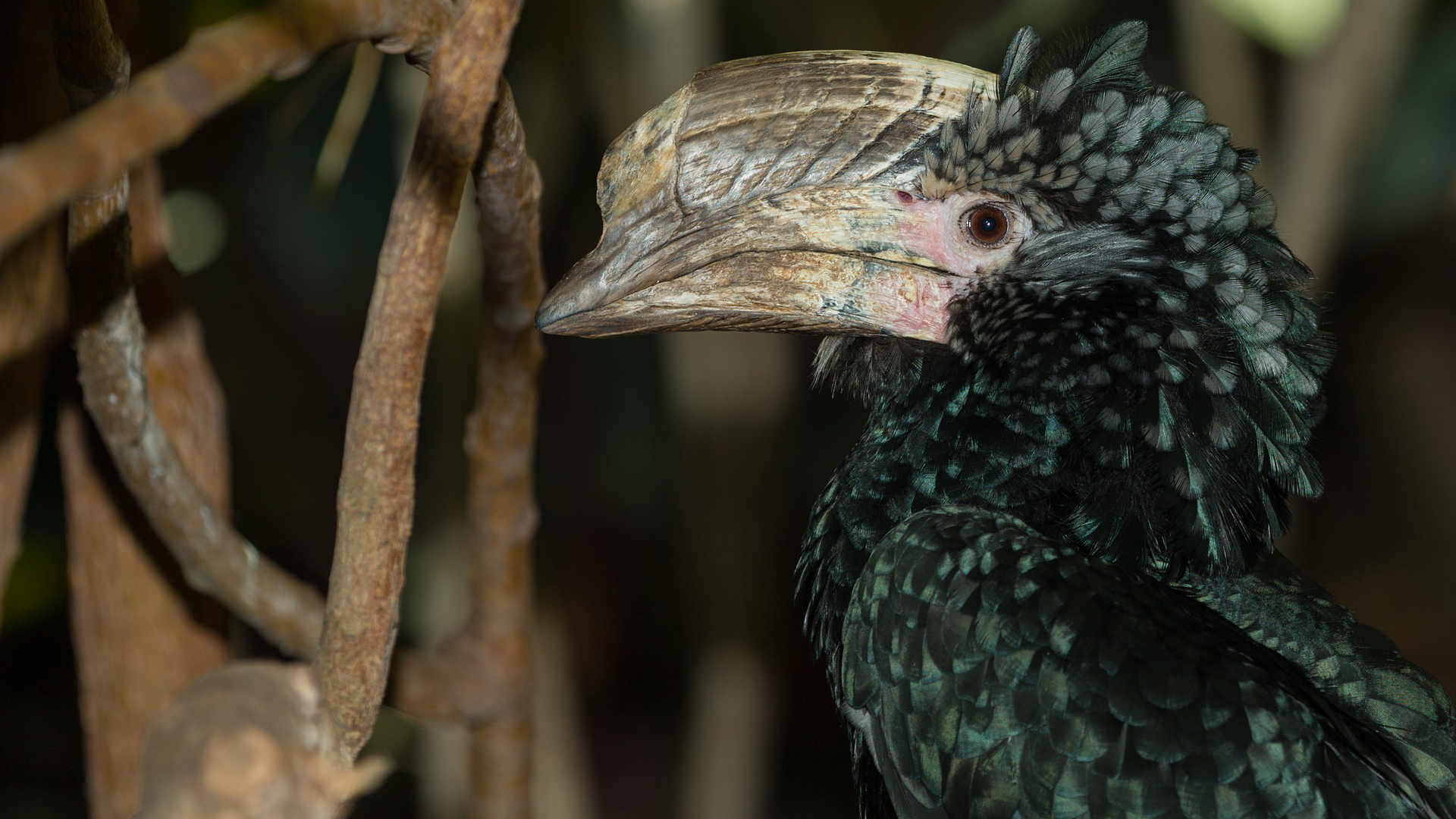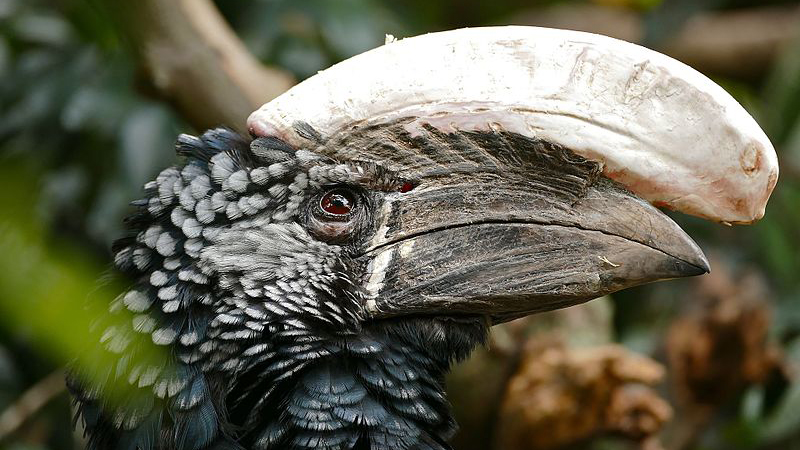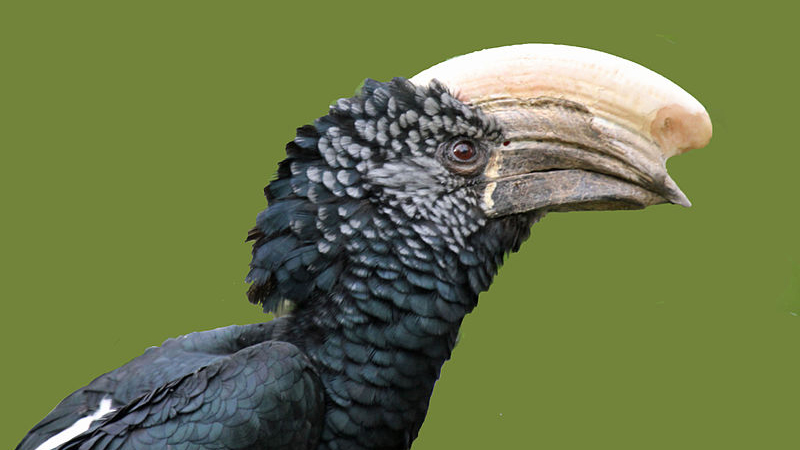
Silvery-cheeked hornbills are large African birds. You can easily distinguish the male and female, as the male has a very large casque adorning the top of their bill. It is believed that this serves to amplify the male's calls.These birds primarily eat fruit, but will also consume insects and small animals for protein.
Silvery-cheeked hornbills are one of several African species of hornbill. These birds are monogamous, meaning they mate for life. They participate in a nesting strategy that is truly unique to hornbills, wherein the female will seal herself into a tree cavity with her brood. She will leave a slit in the opening to the cavity that is only large enough for the male's bill, as she will depend on him as her sole source of food until her chicks are ready to fledge. Because of this unique method of nesting and their dependence on trees for food and shelter, these birds are threatened with deforestation in their native range.

These are a large type of hornbill from Africa. They get their name from the silvery feathers on their face.
Josh
Hornbill beaks are comprised of honeycombed bone with a thin layer of overlaying keratin. This means that in spite of looking very heavy, they are actually quite lightweight!
Eastern Africa
Tropical, broadleaf, and coniferous forests
Height: 60-70 cm, Weight: 1-1.4 kg
Mainly fruit, some insects, eggs, and small reptiles and birds
Large size, flight
Females will lay 1-2 eggs in a hollow tree cavity.
Least Concern


